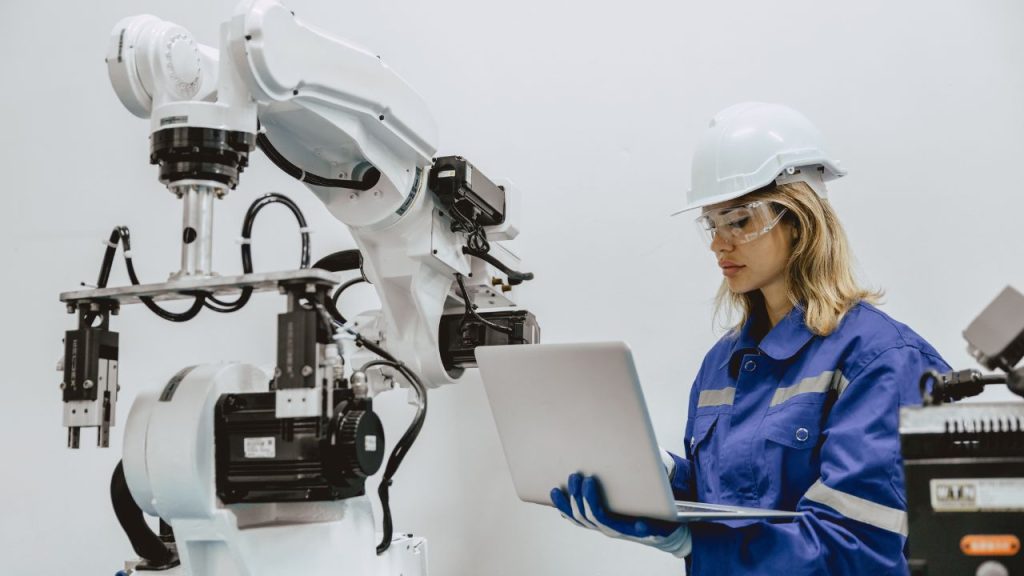Navigating the future of automation in the global workforce

In today’s fast-paced technological era, automation is one of the pillars of progress, revolutionizing industries and transforming the global workforce. Human jobs are being mastered by artificial intelligence and machines, which significantly impact employment and the economic structure.
Here is a look at how automation and technological progress worldwide affect workers and drive an urgent need for policy modifications. Through retraining programs and social safety net adaptations, economic stability and social safety can be retained in this era of technological revolution.
The impact of automation on the global workforce
Automation is reshaping the global workforce, and its impact is being felt in numerous industries. In manufacturing, for example, robots and automated assembly lines are very effective but are also associated with a reduced need for manual labor from human beings. Similarly, the advent of artificial intelligence in fields such as customer service and data analytics has changed job descriptions, requiring staff to keep up with more computerized tasks.
The retail and transportation sectors are also experiencing significant changes due to automation. Self-checkout systems and online shopping platforms reduce the demand for traditional retail jobs, while autonomous vehicles potentially disrupt driving-related professions.
Although automation presents risks such as job displacement and widening income inequality, it also offers benefits such as greater productivity, reduced costs, and new job opportunities in tech-driven fields. The challenge lies in balancing these outcomes to ensure a stable and inclusive job market.
Technological advancements and workforce evolution
Technological advancements are rapidly reshaping existing job roles and creating new opportunities in emerging fields. For example, the evolution of the digital economy has spurred a rise in career opportunities in cybersecurity, data analysis, and software development. In addition, the emergence of renewable energy and biotechnology drives demand for careers in sustainable development and healthcare innovation.
Digital literacy and constant upskilling are more critical than ever as the workforce changes. Digital skills and the ability to adapt to new software and systems are considered indispensable in the current digital job market driven by technology. Employers are shifting their attention to candidates who can maneuver digital space. Therefore, continuous learning and professional development are paramount for career growth. Moreover, upskilling programs and lifelong learning initiatives are becoming vital for workers to stay relevant in their fields. By embracing these opportunities, individuals can remain competitive in a job market that is constantly being transformed by technological advancements.
The need for policy changes
Automation and other emerging technologies are the main factors reshaping the workforce environment. Appropriate policy amendments must be followed to cater to these shifts. One crucial aspect is the implementation of retraining programs, which will help employees adjust to new technologies and roles in the workplace.
These programs provide individuals with the tools and knowledge they need for a successful progression in the world of technology characterized by constant development. Governments and organizations can reduce unemployment and underemployment by supporting education and preparing workers for new industries.
In addition to retraining programs, adaptations to social safety nets are crucial for providing support during these transitions. Because automation may lead to job displacement, enhanced unemployment benefits, income support programs, and access to affordable healthcare become vital components of a robust social safety net. These measures can help alleviate the financial and emotional stress associated with job loss, ensuring a smoother transition to new employment opportunities.
The role of organizations in influencing policy changes
Organizations play a pivotal role in the discourse on policy changes to address the impact of automation and technological advancements. No Labels, for example, is making meaningful contributions by fostering bipartisan dialogue and collaboration. Their efforts emphasize the importance of bringing together diverse perspectives to develop pragmatic solutions that cater to the evolving needs of the workforce.
The significance of bipartisan support in implementing effective policies cannot be understated. In a political landscape often characterized by division, bridging gaps and working collaboratively across party lines is crucial. Policies aimed at retraining programs, adapting social safety nets, and ensuring economic security demand a collective approach, transcending political biases.
Organizations such as No Labels act as catalysts for change by preaching a cooperative way of thinking in policy making. They play a significant role in promoting bipartisanship and fruitful conversations that contribute to adopting inclusive policies that reflect the changing needs of the global working class. These organizations create a future that can withstand and adapt to technological changes by advocating cooperation.
Automation, technology and the global workforce
The emergence of automation is reshaping the global workforce, presenting us with challenges and opportunities. The need for policy changes, including retraining programs and adaptations to social safety nets, is imperative to ensure economic security and social stability. Supporting initiatives and organizations that advocate for responsible policy changes is important. As we move forward, adaptability and collaboration will be essential for navigating the complexities of automation, ensuring a future where the workforce remains resilient and thriving despite technological advancements.



